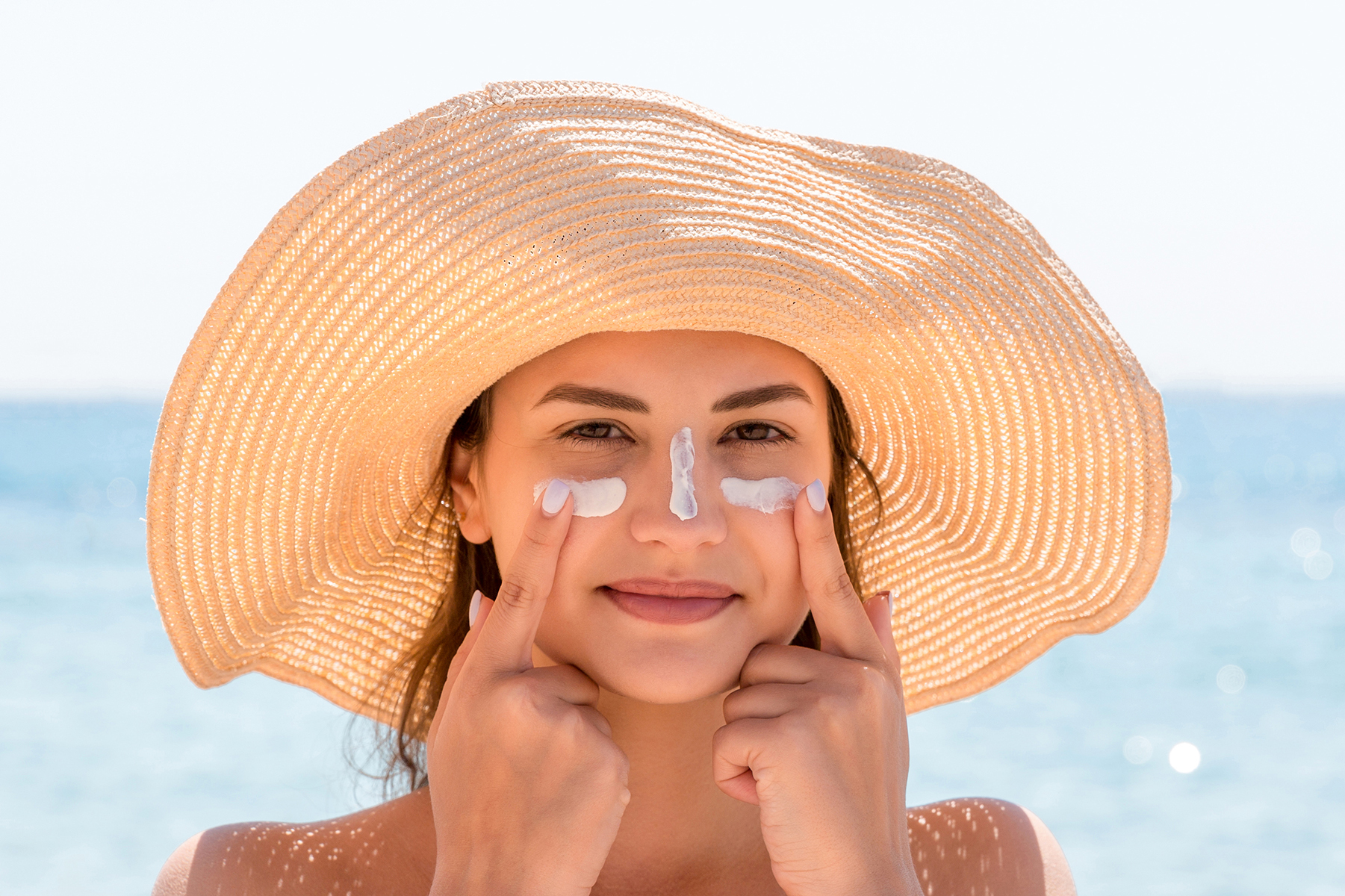The Power Of Sunscreen

If you’re searching for the secret to aging gracefully, look no further than sunscreen, the number one product everyone should be using. While retinols and lightening products work wonders when it comes to combating fine lines and hyperpigmentation, it’s much easier (and less expensive) to prevent them in the first place. Sunscreen is your best defense against premature aging and skin damage.
THE POWER OF SUNSCREEN
Fine lines and wrinkles are a natural part of the aging process, but the sun’s harmful rays can accelerate this process by damaging skin cells and breaking down collagen and elastin. Moreover, unprotected sun exposure significantly increases the risk of skin cancer.
I’m sure you’ve heard about the importance of SPF countless times. Still, when I speak with clients about it, I am shocked at how many neglect to wear it daily. Common excuses include not spending time outside, relying on makeup with SPF, or struggling to find a suitable sunscreen. Let’s address these concerns.
COMMON MISCONCEPTIONS
I’m inside all day. I hate to be the one to tell you, but unless you are in a dark, windowless room, you still need sunscreen. UVA rays – the rays primarily responsible for premature aging – can penetrate glass. So although you may not get a sunburn while indoors, the light coming through the windows can still damage your skin’s deeper layers.
Isn’t the SPF in my makeup enough? Unfortunately, the SPF in makeup isn’t sufficient. While your makeup may provide slight protection, you would need to apply a significant amount to get close to achieving the SPF number on the label. Plus, SPF needs to be reapplied every two hours, which isn’t very practical with makeup.
I can’t find a sunscreen that I like. You are in luck! Thankfully, sunscreen formulations have come a long way over the years, and I guarantee there is a product out there for everyone. There are a couple of different types of sunscreen, each with their pros and cons.
- Chemical sunscreen: Chemical sunscreens absorb into the skin and convert UV rays into non-damaging heat. They include ingredients like oxybenzone or avobenzone. It is important to note that chemical sunscreens are not reef-safe, so if you are planning any beach vacations, you’ll need to avoid these.
- Physical/mineral sunscreen: Physical sunscreens sit on top of the skin and act as a shield to block UV rays from penetrating the skin. They are the preferred choice for those with sensitive skin. In the past, physical sunscreens would leave a white cast on the skin, which wasn’t ideal for people with darker skin tones. The formulations have evolved greatly over the years, and today you can find many that don’t leave a white residue.
CHOOSING THE RIGHT SPF
When selecting a sunscreen, choose one that is at least SPF 30. This rating indicates how long it will take for UV rays to redden the skin compared to skin with no sunscreen. However, SPF values above 30 have minimal differences in efficacy. For example, SPF 50 only provides about 1% more protection than SPF 30. Studies have also found that people who use a higher SPF have a false sense of protection, and are therefore less likely to reapply as frequently as they should.
If you are still struggling to find the sunscreen you like, it may be time to look overseas. Many people who haven’t had luck with American brands find that Korean sunscreens work better for their skin. In the U.S., sunscreen is regulated by the FDA, whereas in Korea, they are still tested for UV protection, but the process for approval is quicker. This allows them to create new more innovative sunscreens that many prefer.
No matter which sunscreen you choose, the key is to wear it daily and reapply frequently. Embrace this simple yet powerful step to protect your skin from premature aging and sun damage. Your future self will thank you.
Samantha Luce
Owner of Jubilation Skincare & Massage. Follow on social media @jubilationspa.

